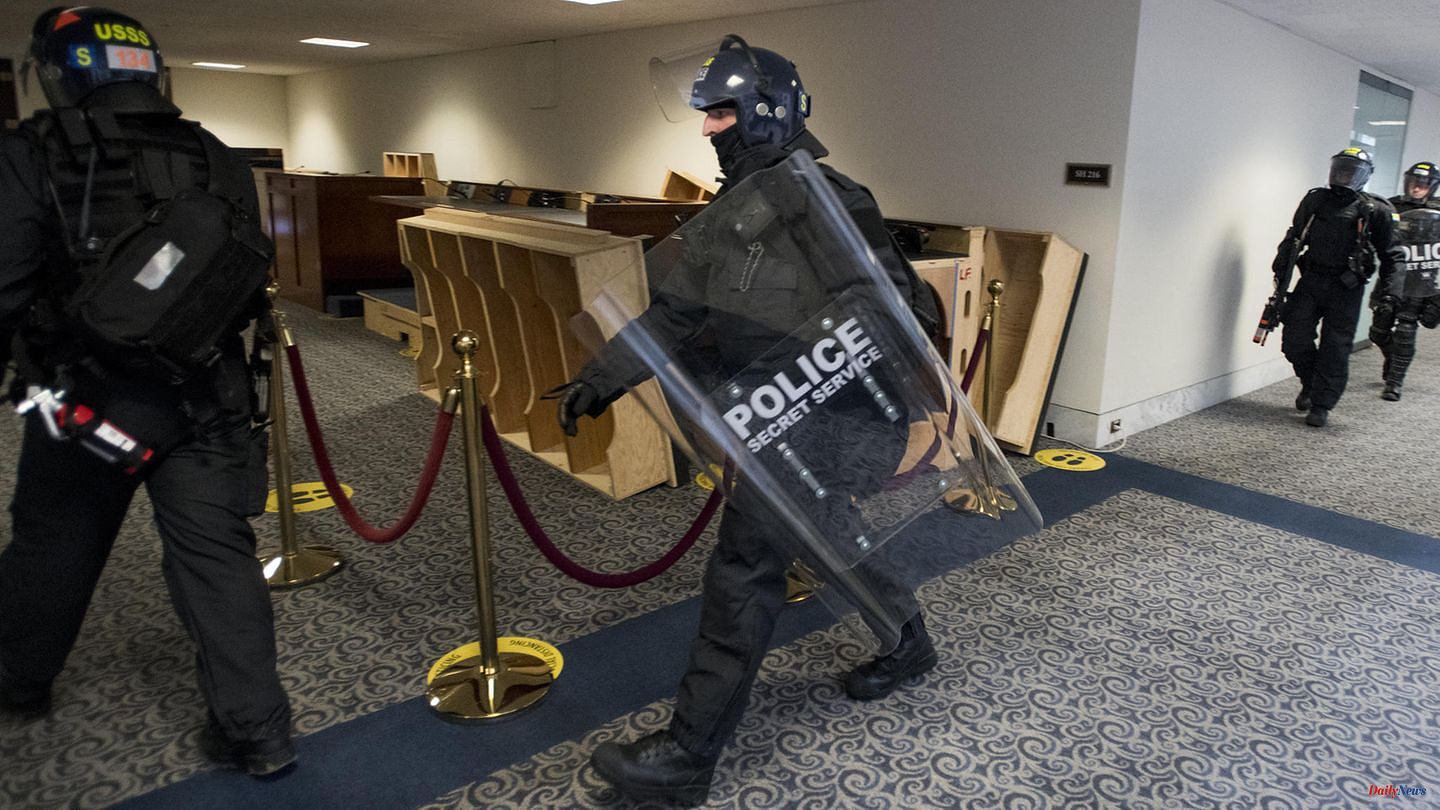It's not as if the parliamentary committee is under-employed as of January 6th. The innumerable pieces of the puzzle are slowly giving a picture of this Wednesday, which has gone down as one of the blackest days in US history. And yet decisive voices are still missing, such as that of the then US President Donald Trump. The records of his bodyguards before, during and after the storming of the Capitol would also help the investigators, but they mysteriously disappeared. Except for one text message.
"That's all we have," said Democratic Rep. Stephanie Murphy, stunned. Because actually there should be countless SMSes and other messages from Secret Service employees on this day. But only this one message, the request for support from the then Capitol Policeman Steven Sun, has now been handed over to the members of the US House of Representatives. There is an official statement about the whereabouts of the rest of the communication, but it raises more questions than it answers.
Among other things, the texts and messages are intended to help find out what role Donald Trump played on the day. Five people died in the course of the riots at the time. A former White House aide, Cassidy Hutchinson, testified that on Jan. 6, Trump allegedly angrily demanded that his top bodyguards drive him to the Capitol. However, they would have refused.
In mid-July, the Department of Homeland Security, which is responsible for the president's bodyguards, announced that "several" text messages from Secret Service security guards had been deleted on the day of the Capitol attack. The reason for this was a device exchange program in which the phones were reset to the factory settings. Immediately after the statement became public, the question arose as to whether the messages could have been intentionally removed to cover up something.
"The committee will be made aware of this extremely worrying destruction of records and will respond accordingly," Bennie Thompson, chairman of the committee of inquiry, said at the time. The Secret Service rejected the allegations: "The insinuation that the secret service maliciously deleted messages on request is wrong," it said, rather they had cooperated fully with the Department of Homeland Security. In addition, the ministry only requested data on February 26 - weeks after the exchange of the devices had begun.
However, that is not the case from the perspective of the overseeing inspector general for the Department of Homeland Security, Joseph Cuffari. The messages were deleted after his office requested records of electronic communications around January 6, the letter said. Cuffari also criticized the Secret Service for delaying the provision of other documents. According to the "Washington Post", the inspector general already knew in February that the communication had disappeared. In October 2021, Cuffari wanted to inform the public about the authorities' blockade attitude, but did not do so. Exactly why is still unclear.
The Secret Service does not want to let the criticism sit on it. Spokesman Anthony Guglielmi now said the agency's regulations would prohibit further use of text messages for security reasons. However, he acknowledged that the phones of 24 employees whose SMS histories had been requested by the committee were not affected by the device swap. Guglielmi vehemently ruled out the existence of "secret messages" and that anything else should be kept secret from investigators.
The committee members are slowly losing patience in the face of the implausible explanations from the Secret Service: "It all remains a great mystery," said Representative Jamie Raskin of the Democratic Party. His colleague Stephanie Murphy summarizes the problem on MSNBC: "On January 16, the Secret Service received four requests from the investigative committee to archive the recordings. The device replacement was already planned for January 25. And nobody thinks so come to say, 'maybe we shouldn't move the dates and wait until it's at Congress'"? Jamie Raskin put it more bluntly: "It's an odd coincidence that the text messages written during our country's most violent insurgency since the Civil War go nowhere. I smell a rat."
How the case should or will continue is legally and technically unclear. While the Secret Service claims general confidentiality rules, experts like George Washington University's Jonathan Turley believe these "records are the nation's history" and belong in the public domain. Meanwhile, the authorities are trying to use forensic means to get "all available metadata" in order to be able to track down the lost messages somewhere.
Sources: DPA, AFP, The Hill, Washington Post, AP News.-












